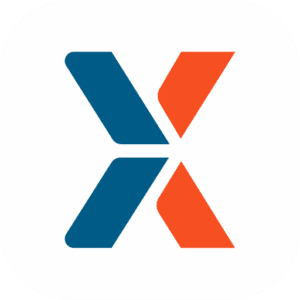The construction industry manages some of the most complex procurement operations in any sector. Between multi-million dollar projects, thousands of suppliers, mobile workforces, and tight margins, construction companies face unique challenges that generic procurement solutions simply can’t address.
Recent industry research reveals that construction companies achieve 18% improvement in project profitability through better procurement visibility and supplier performance management. Yet many firms still struggle with manual processes, disconnected systems, and lack of real-time project cost control.
Here are the five most critical procurement challenges we see construction companies wrestling with – and the technology solutions that are making a difference.
1. Project-Based Cost Tracking Across Multiple Job Sites
The Challenge: Unlike traditional businesses with centralized operations, construction companies need to track costs across dozens or hundreds of active projects simultaneously. Each job site has unique requirements, budgets, and timelines, making it nearly impossible to maintain visibility with spreadsheets or generic ERP systems.
The Pain Points:
- Materials ordered to wrong job sites
- Budget overruns discovered weeks after they occur
- No real-time visibility into project profitability
- Manual reconciliation between purchase orders and project costs
The Solution: Project-based procurement platforms that allow cost tracking by job site, phase, or custom allocation. Modern solutions enable field teams to create purchase requisitions directly from mobile devices while automatically categorizing expenses to the correct project codes.
Real Impact: One construction customer shared: “Takes 15 minutes to set up a $50M+ project and have your team up and running. Works seamlessly on site.” This kind of rapid deployment and mobile accessibility transforms how construction teams manage procurement in the field.
2. Managing Thousands of Suppliers and Subcontractors
The Challenge: Large construction projects involve hundreds of suppliers – from major material vendors to specialized subcontractors. Each relationship requires different terms, compliance requirements, and performance monitoring.
The Pain Points:
- Inconsistent supplier onboarding processes
- Difficulty tracking subcontractor performance across projects
- Manual vendor qualification and insurance verification
- Limited visibility into supplier delivery reliability
The Solution: Centralized supplier management platforms that maintain comprehensive vendor databases with performance metrics, insurance tracking, and automated compliance monitoring. Advanced systems provide supplier scorecards that track delivery performance, quality metrics, and safety records across all projects.
Key Benefits:
- Standardized vendor onboarding reduces qualification time
- Performance dashboards identify reliable vs. problematic suppliers
- Automated insurance expiration alerts prevent compliance issues
- Historical performance data improves future vendor selection
3. Mobile Accessibility for Field Operations
The Challenge: Construction teams spend most of their time on job sites, not in offices. Traditional procurement systems designed for desk-based workers fail when foremen need to request materials from a muddy construction site or approve emergency purchases from their truck.
The Pain Points:
- Delayed approval processes when managers are in the field
- Paper-based requisitions that get lost or delayed
- Inability to check budgets or supplier information on-site
- Emergency purchases made without proper approvals
The Solution: Mobile-first procurement platforms with native apps that provide full functionality from any device. Field teams should be able to create purchase orders, check project budgets, approve requisitions, and communicate with suppliers directly from their phones or tablets.
Mobile-First Features That Matter:
- Offline capability for areas with poor connectivity
- Photo capture for damage claims or delivery verification
- GPS integration to automatically assign purchases to correct job sites
- Push notifications for urgent approvals
4. Material Cost Volatility and Budget Control
The Challenge: Construction projects often span months or years, during which material costs can fluctuate dramatically. Lumber, steel, and fuel prices are particularly volatile, making it difficult to maintain project profitability when initial bids were based on earlier pricing.
The Pain Points:
- Budget overruns due to unexpected price increases
- Difficulty tracking cost variations across multiple suppliers
- Manual processes for comparing quotes and negotiating prices
- Limited visibility into spending commitments vs. available budgets
The Solution: Procurement platforms with real-time budget monitoring and automated cost variance alerts. Advanced systems integrate with supplier catalogs to provide current pricing and can automatically flag when purchase requests exceed budget thresholds.
Budget Control Features:
- Real-time budget vs. spending dashboards
- Automated alerts when purchases approach budget limits
- Historical price tracking to identify cost trends
- Integration with accounting systems for accurate financial reporting
One customer noted the impact: “We have been able to increase the control over purchase approvals (we have not overrun budget since then), we have eliminated bureaucratic forms that required physical signatures and we have streamlined the approval process.”
5. Compliance and Documentation for Audits
The Challenge: Construction projects face intense regulatory scrutiny, from prevailing wage requirements to safety compliance and environmental regulations. Maintaining audit-ready documentation while managing day-to-day operations creates significant administrative burden.
The Pain Points:
- Manual document collection and filing
- Difficulty producing comprehensive audit trails
- Inconsistent approval documentation across projects
- Time-consuming preparation for regulatory inspections
The Solution: Automated compliance tracking with built-in audit trails and standardized approval workflows. Modern procurement platforms maintain complete transaction histories and can generate compliance reports for specific projects, time periods, or regulatory requirements.
Compliance Features:
- Automated approval workflow documentation
- Digital signature capture and timestamp verification
- Searchable document repositories organized by project
- Standardized reporting templates for common audit requirements
The Technology Solution: Project-Based Procurement Platforms
The common thread across all these challenges is the need for procurement technology specifically designed for project-based operations. Generic procurement solutions fail because they assume centralized operations and standard workflows – assumptions that don’t hold in construction.
Key Requirements for Construction Procurement Technology:
- Project-Centric Architecture: Every purchase, approval, and report should be organized around projects, not just departments or cost centers.
- Mobile-First Design: Field teams should have the same capabilities on mobile devices that office staff have on desktops.
- Rapid Implementation: Construction moves fast – technology deployments should match that pace with configurations measured in days or weeks, not months.
- Real-Time Integration: Connect with existing accounting systems (especially QuickBooks for smaller contractors) and project management tools.
- Industry-Specific Features: Understanding of construction terminology, workflows, and compliance requirements.
Getting Started: A Practical Approach
For construction companies ready to modernize their procurement operations, we recommend a phased approach:
Phase 1: Core Procurement (Weeks 1-4)
- Implement basic purchase order and approval workflows
- Set up mobile access for field teams
- Establish project-based cost coding
Phase 2: Integration and Analytics (Weeks 5-8)
- Connect with existing accounting and project management systems
- Implement real-time budget monitoring
- Create performance dashboards for project managers
Phase 3: Advanced Features (Weeks 9-12)
- Deploy supplier scorecards and performance tracking
- Implement automated compliance reporting
- Add predictive analytics for cost forecasting
The key is starting with core functionality that delivers immediate value, then expanding capabilities as teams become comfortable with the new processes.
The Bottom Line
Construction companies that modernize their procurement operations see measurable improvements in project profitability, cost control, and operational efficiency. The challenge isn’t finding technology solutions – it’s finding solutions designed specifically for the unique demands of construction operations.
The best construction procurement platforms combine the project-based tracking construction companies need with the mobile accessibility field teams demand and the financial controls CFOs require. When implemented properly, these systems transform procurement from a source of project delays and cost overruns into a competitive advantage that drives profitability and growth.
Ready to see how modern procurement technology can transform your construction operations? Contact ProcurementExpress to learn about our project-based procurement solutions designed specifically for construction companies.
About ProcurementExpress: Trusted by 764+ organizations across industries, ProcurementExpress provides project-based procurement solutions that help construction companies achieve better cost control, faster approvals, and improved project profitability. Our platform is specifically designed for companies managing multiple projects with mobile teams and complex supplier relationships.




